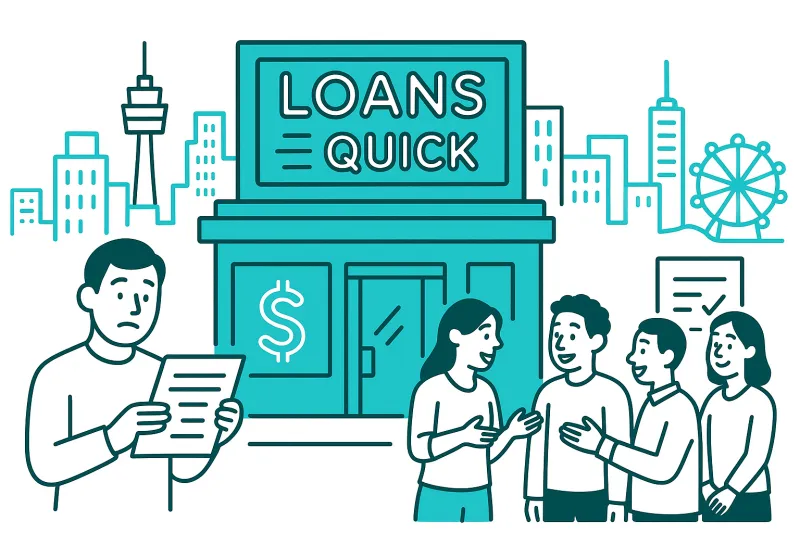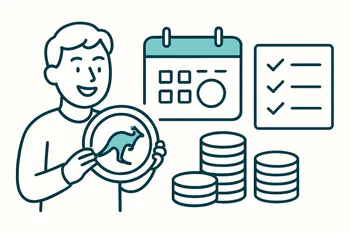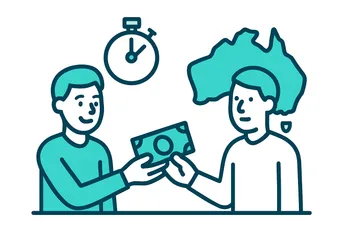Understanding Payday Lenders in Australia
- Personal Finance
- 03 Mins read

Understanding Payday Lenders in Australia
What Are Payday Lenders?
Payday lenders provide short-term, high-interest loans. These loans are often used when someone needs cash quickly. Typically, these amounts are small, ranging from $100 to $2,000. The main appeal of payday loans is their speed and convenience, often granting access to funds within one business day.
However, the interest rates can be extremely high. According to the Australian Securities and Investments Commission (ASIC), some payday lenders can charge annual percentage rates (APRs) of over 500%. This can lead to borrowers owing significantly more than what they borrowed if they're not careful.
The Risks of Payday Loans
Using payday lenders comes with serious risks. The most significant threat is the debt cycle. Many borrowers find themselves taking out new loans to pay off existing ones. This cycle can spiral quickly, leading to compounded interest that is hard to escape.
For example, let’s say you take a payday loan of $1,000 at a 400% APR for a term of just two weeks. If you can’t repay it on time, that can balloon to about $1,500 after just one rollover. This gives you a quick view of how overwhelming the repayment can become.
Regulations Governing Payday Lenders
Australia has strict regulations in place to protect consumers. The National Consumer Credit Protection Act 2009 provides a framework for how payday lenders must operate. Lenders need to be licensed and adhere to responsible lending obligations. This means they must assess whether the loan is suitable for the borrower.
In 2020, the government introduced additional restrictions aimed at protecting vulnerable borrowers. These include capping fees and charges, specifically:
- Establishment fees: Limited to 20% of the loan amount.
- Monthly fees: Limited to 4% of the amount borrowed.
Key Considerations Before Borrowing
Before taking out a payday loan, consider the following factors:
Assess Your Financial Situation: Can you really afford this loan? Look at your income and expenses closely.
Explore Other Options: Could you lean on friends, family, or a credit union for financial support?
Understanding Repayment Terms: Make sure you know when and how you’ll need to repay the loan. Look for hidden fees.
Read Reviews and Check Licensing: Ensure the lender is licensed and has a good track record. You can check ASIC’s website for this information.
Alternatives to Payday Loans
Depending on your situation, there may be better options than payday loans. Here are a few alternatives:
- Personal Loan: Generally, these have lower rates and longer repayment terms.
- Credit Cards: If managed responsibly, credit cards can offer a grace period without interest.
- Community Support Programs: Many non-profits offer small grants or interest-free loans for emergency situations.
Each of these options carries its own pros and cons, so choose wisely based on your circumstances.
Real-Life Scenarios
Let’s take a closer look at a couple of scenarios:
Scenario 1: Jessica’s Quick Fix
Jessica works part-time and faces an unexpected car repair bill of $700. She considers a payday loan. Although quick, she realizes that after fees, she'd end up paying $900 back within two weeks. Instead, she checks with her credit union, which offers a personal loan with a lower interest rate and reasonable repayment terms. Jessica opts for the personal loan, thus avoiding the payday loan trap.
Scenario 2: David’s Debt Cycle
David borrows $1,000 from a payday lender. Due to his low income, he struggles to pay it back and rolls over the loan. Within a month, he owes $1,500 instead. Frustrated and in debt, David turns to community support services, which help him negotiate a repayment plan that eases his financial burden.
These stories illustrate how understanding your options can prevent financial distress.
Seeking Help When Needed
If you find yourself overwhelmed by debt from payday loans, there’s help available. The National Debt Helpline offers free advice and can connect you with financial counselors who specialize in managing debt. Don’t hesitate to reach out. The sooner you act, the more options you have to regain control over your finances.
Conclusion
Payday lenders can appear attractive when you need quick cash. However, the steep interest rates and potential for falling into a debt cycle can lead to long-term financial issues. By understanding the risks and exploring alternatives, you can make informed decisions that protect your financial health.
In my ten years as a mortgage broker, I’ve seen many Australians navigate these challenges. The key takeaway? Always do your homework before borrowing money. It’s better to take your time to find a solution than to rush into a decision that could haunt you later.
Remember, you're not alone in this journey. Keeping informed is your best defense against financial pitfalls.



